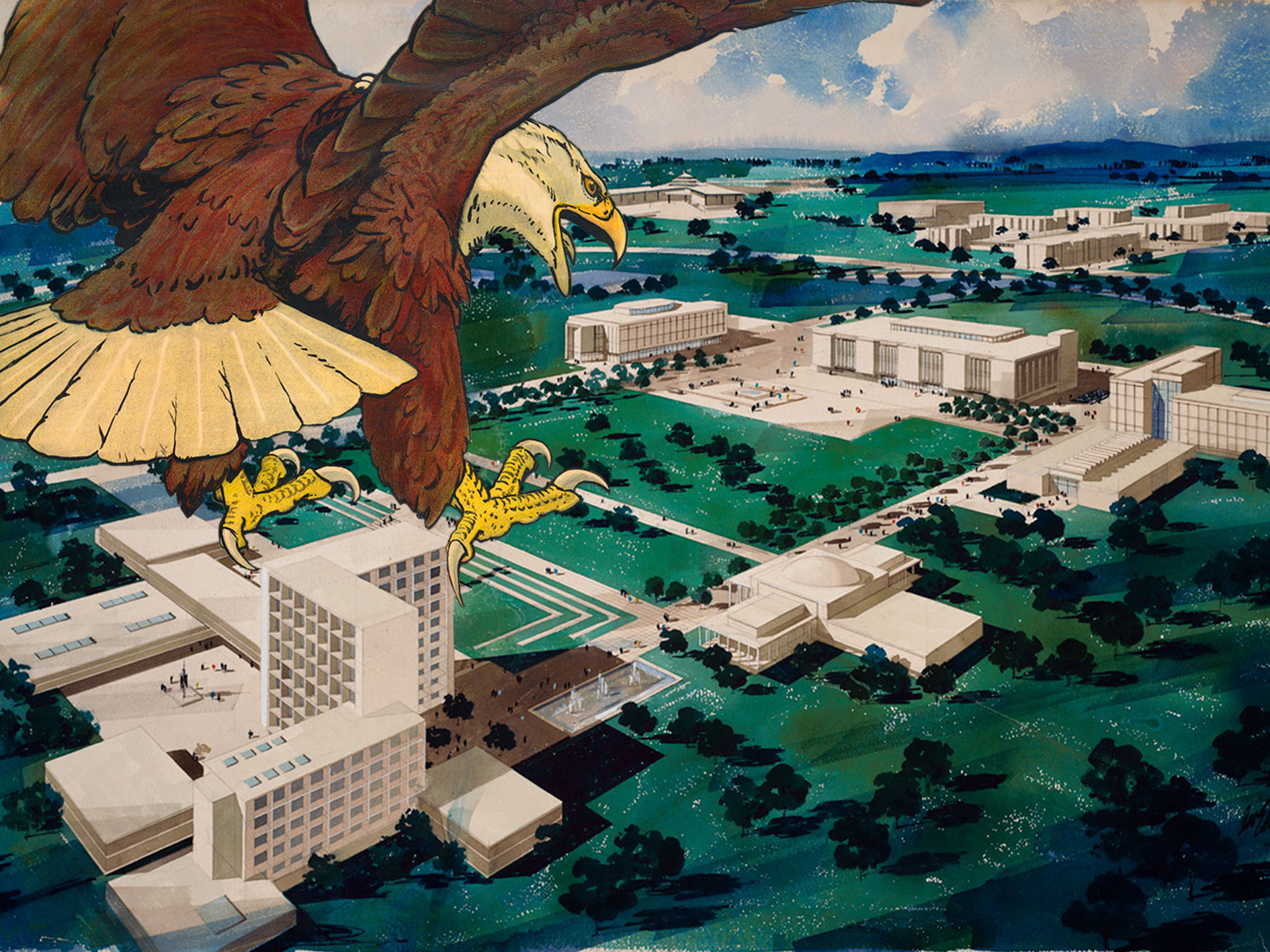Trump’s war on science doesn’t stop at the border

Graphic by Scott Van Haren / Images courtesy of the University of Victoria and The Huntington Library, Art Museum, And Botanical Gardens.
Climate scientists at UVic are feeling the impacts of U.S. President Donald Trump’s orders to cut federal spending south of the border.
In the first two months of his term, Trump’s administration has slashed funding at research agencies like the National Oceanographic and Atmospheric Administration (NOAA) and the National Science Foundation, fired thousands of federal scientists, hidden climate change information, and halted international research collaborations.
These policies have been met with outrage and legal challenges, leaving U.S. research institutions in disarray and the UVic researchers that depend on them in a state of uncertainty.
Dr. Gerald Singh, an assistant professor in the School of Environmental Studies at UVic, is involved in an international project that receives funding from the U.S. government to study how satellite data can help with environmental management. Now, the future of that project is unknown.
“The NOAA funding has been cut. The other part of the funding was from NASA, and that’s still in the air,” said Singh.
“That project is in pretty serious jeopardy,” Singh told the Martlet.
The U.S. has “been quite open about being highly critical of anything climate related,” said Singh. “There’s a lot of uncertainty right now around the future of climate data.”
Dr. Diana Varela, a professor of biology at UVic who studies global warming’s impact on oceans, also worries about the future of her 18-year-long collaboration with American scientists aboard Canadian icebreaker vessels.
The project in question uses American funding to study global warming in the Arctic Ocean, a region rich in potential oil reserves where the U.S. has been axeing scientific research. This makes the project a likely target for an administration looking to pull funding from programs it decides “no longer effectuates agency priorities.”
“If you put all that together,” said Varela, “I don’t know how this program is not going to be cut.”
Yet direct funding is only one small way that the U.S. supports climate research at UVic, said Dr. David Atkinson, Chair of the Department of Geography.
“If they move to cut off [access to] data, that’s going to be the biggest impact,” Atkinson explained.
The U.S. collects much of the large-scale, global data that climate scientists need through projects like satellite imaging, environmental monitoring, and atmospheric tracking.
This data is housed in the U.S., along with data from countries around the world, serving as a global repository available to anyone who wants to use it — and many researchers do.
Despite the dependence of global science on these datasets, future access to them is no longer certain. While the U.S. has not yet made any moves to forbid international researchers from accessing American data, orders have been sent to NOAA employees to pause “all international engagements,” including communications with “foreign national colleagues.”
American research centres could implement an IP restriction and bar other countries from being able to access the vast data they store “in a second,” said Atkinson.
Beyond potential collaboration restrictions, the severe cuts to NOAA and other federal scientific agencies mean that many of these vital programs are at risk of being terminated.
“Most of the really good, reliable data comes from NOAA, NASA,” and other U.S. federal agencies, said Rekha Marcus, a master’s student in Singh’s lab who planned to do much of her research using American climate data.
While the data she was going to use is still available, Marcus has already started to shift her research away from U.S.-based data.
“When I started realizing that a lot of these data sources were getting taken down,” Marcus said, she started searching for backup data to complete her research.
Restrictions to U.S. data “would throw [off] a lot of grad students’ work,” said Atkinson. “What I worry most about is our students who have projects that depend on these data sources.”







